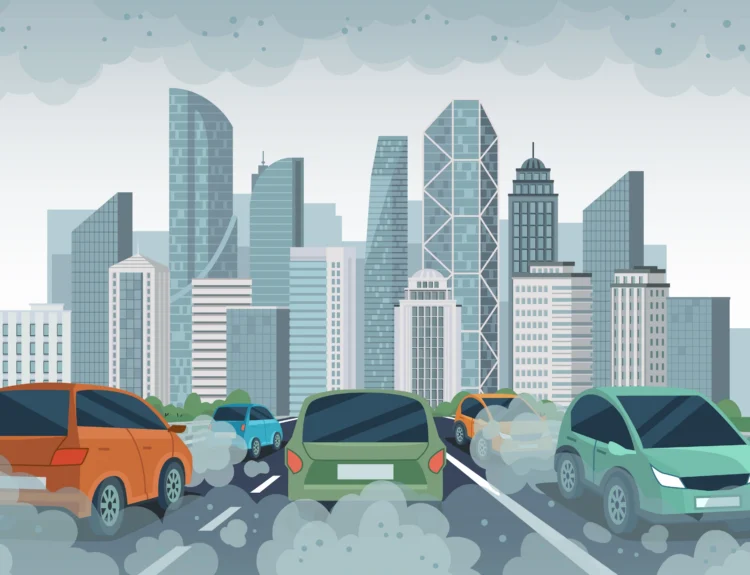When we recently watched a political talk show on the German TV programme Ersten, we were asked what the debt brake actually is.
The Sunday question. In conversation with one of my carers. The fifth past interview, recorded on Wednesday, 15 January 2025. Spelling corrected, apart from that unchanged. Bear with me, I wrote this in one piece from memory.
It's amazing how different the opinions are. I would have thought that anyone who went to a talk show like this would have read up on politics.
It's been twenty years since I wrote a macroeconomics exam at university, but even then I learnt that the debt brake is wrong and that Germany can only grow if the state incurs debt.
It's unbelievable what kind of whistles our finance ministers are.
The debt brake is a construct that German politicians have imposed on themselves in order to prevent the state from becoming too indebted.
To put it very simply, the state may only incur debt for structural changes, such as repairing bridges, to the tune of 0.35 % of gross domestic product (GDP). In other words, 0.35 % of economic output may be borrowed and the rest must be financed from current tax revenues.
This has two very big problems that our politicians have completely ignored since 1998 - and nobody is doing anything about it. I find that totally blatant, because you've been studying economics since around the beginning of the 1980s.
The logic of the federal government is to promise tax cuts every year that never materialise. They assume that some dubious tax stimulus will revitalise the economy and thus increase the state's tax revenues. This can then be used to pay off the interest on existing debts.
Phew. Understandable so far?
Unfortunately, it doesn't work that way. In order for the economy's income to grow, someone has to incur debt. This is not a theory, but the logic of accounting. If you buy a bread roll from the baker, he has income because you have spent money. Your expenditure is the other person's income. In order for the economy to receive income, someone has to spend money.
When people have full employment and everyone earns enough to feed their families, consumption increases. Private households generate spending, buy mobile phones in instalments, finance cars and houses. Their spending allows the economy to grow in real terms.
Those days are over. The labour market is poor, companies are closing down, the traffic light government has collapsed. Nobody knows what the next crisis will be tomorrow. What is people's natural reaction to uncertain times? They reduce their consumption and save. Those who save have less expenditure, and because my expenditure is the income of others, the economy has no income. Without income, the economy doesn't work and staff have to be made redundant. This is exactly what we are seeing everywhere now.
What I have just explained in detail is the reason why there are redundancies and staff cuts everywhere and why wages in Germany are rising too little compared to the rest of Europe.
It is hardly surprising that people in such a hopeless and hopeless situation are turning to populist parties such as the AfD and BSW. This is a problem of our own making.
Phew.
That really is a very complex question. I would have to go into much more detail to really answer it correctly.
I'll try to keep it short, lol.
The basic observation was that one person's expenditure is another person's income. For the economy to have income, someone has to have expenditure and incur debt.
You can forget about households. We have just clarified that private individuals, macroeconomically speaking, households, save and do not incur debt.
Who else can take on debt and ensure that expenditure is generated?
For example, the economy could run up debts. That also used to happen in Germany. Companies invested in Germany, built factories, bought equipment and machinery, financed them for ten, twenty, thirty years, and thus brought new money into circulation. The same principle again: one company's expenditure is another company's income. It can remunerate employees, the purchasing power of the employees increases, as a result household consumption rises and the country's economic output increases.
That will not happen. The opposite is the case. Because the federal government is constantly changing its mind and changing laws that are highly relevant for companies, Germany has become an unattractive business location. Just think, the chip manufacturer Intel wanted to build a plant in East Germany and we would have subsidised it with, I think, 11 billion euros. In other words, the German state would have given Intel 11 billion euros to invest in the new federal states and create jobs in Germany. And Intel backed out at the last minute because the location was too unsafe. I can understand that, especially for such an energy-intensive company as a chip manufacturer. Imagine they calculate the energy costs with state subsidies for green electricity, and then the government does the same as it does with subsidies for environmentally friendly heat pumps or subsidies for electric cars. Cancelled. Simply gone. The industry can't afford that. It needs planning security. That no longer exists in Germany, which is why companies are cutting costs.
Which other market participants can take on debt?
Households are saving. They are not in debt at the moment.
Companies are not currently in debt.
Foreign countries could run up debts. If we weren't already letting them run up debts. The debt brake has a second really shitty effect on the euro and all other EU countries, which I believe could even be contrary to European law. The fact that the state cannot incur any new debt means that the currency is revalued. It sounds unbelievable at first, but Germany tends to find itself in a deflationary situation.
We don't just have the euro in Germany, but in the whole of Europe. For a currency to work across so many economic areas, everyone has to pull together. It makes no sense for all states to incur debt in order to invest and only one state not to incur debt. This would cause its currency to appreciate, its products would be more expensive abroad and labour, wage and production costs abroad would in turn become cheaper for this state. If this state is also called Germany and is the world export champion, that sounds like a jackpot.
Unfortunately, this is very short-term thinking. On the one hand, because crises such as the energy crisis, the wheat crisis etc. hit you hard, but also in general, because if everyone has inflation of at least 2 %, which is quite natural and not bad either, this is often misrepresented, if everyone has 2 % inflation, some even more, and only one country has a debt brake of 0 % or 0.35 % - and let's call that country Germany - then after ten years there is a difference of 16.35 %. This destroys foreign countries and the euro currency. Foreign countries can no longer spend because there is nothing left. France: Financial crisis. Recently also unable to govern.
Italy: Financial crisis.
Greece... you name it.
The state has to step in everywhere and take on more and more debt to keep the economy afloat. The shitty financial situation and excessive new debts are not the fault of their policies or the euro, as is often falsely claimed, but the fact that Germany has not adhered to the common target of an inflation rate of 2 % agreed under European law since the beginning of the euro.
The target of 2 % inflation, which all member states must adhere to in order for the single currency to function, was specifically agreed when the euro was introduced and stipulated in the treaties.
The aim was to ensure that the euro remained a reliable and stable currency in which no member state would enrich itself to the detriment of other states and destroy the economic areas. In other words, the EEA wanted to prevent exactly what Germany has been doing for years with the euro treaties. And Germany is doing exactly that anyway.
And guess who came up with the 2 % and got everyone to sign up to stick to the 2 % inflation target?
Well?
It was Germany.
Germany has ruined the EEA economy. There is nothing more to be gained.
Foreign countries are no longer in debt at the moment.
Households are no longer in debt at the moment.
Companies are no longer taking on debt at the moment.
However, as we established at the very beginning: One person's expenditure is another person's income. Someone has to spend money they don't have. Someone has to incur debt, otherwise the economy will grind to a halt. We discussed this earlier. No debt means a loss of purchasing power, because expenditure equals income. Without income there are no salaries and without salaries there is no tax revenue and no consumption. Honestly, we couldn't care less about the almost 17,000 total refuseniks of the Citizen's Income. We have a macroeconomic problem of a completely different dimension.
This brings us back to the only market participant besides households, companies and foreign countries that could and must - must immediately - incur debt, namely the state.
The German state must incur debt. The state's expenditure will become the economy's income. We will renovate our bridges and roads, modernise schools, invest in the energy transition, massively promote the expansion of renewable energies such as wind and solar parks and at the same time renew urgently needed electricity grids. Local public transport, from outdated trains to dilapidated underground railway lines, is lying idle and needs immense investment. In climate policy, targets such as CO₂ reduction are falling by the wayside because there is a lack of funds to replace fossil-fuelled heating systems with renewable alternatives more quickly. Social housing construction has almost come to a standstill, while demand for affordable housing is exploding. The education sector is also severely underfunded: Digital equipment is lacking, teachers are overworked and buildings are falling into disrepair. At the same time, Germany is lagging massively behind in research and development, particularly in key technologies such as artificial intelligence and quantum computers. Each of these areas suffers from a chronic investment backlog, which has a direct impact on competitiveness, the social fabric and quality of life.
The wealth gap continues to widen. Chrissy Lindner and his buddy - and landlord - Jens Spahn are already setting the course for their friends from the Porsche board to continue to "earn" and bequeath millions upon millions tax-free, while the poorest of the poor - recipients of citizen's benefits - have every last cent cut from their incomes. The FDP and CDU call this "work must pay again". That is disgusting.
Um... Again I'm thinking of fleeing into the open arms of populist, or right-wing populist parties like the AfD. 30%, are you surprised? I'm dreading the next elections.
Looking at the USA, I'm dreading tomorrow.
I'm ashamed that I once voted for these two parties. It's been two decades since I got carried away by Lindner's charm, but I should have known. After all, I studied it. And, as you learn in basic economics, the federal government's policy of the last thirty years cannot work for the simple reason that one person's expenditure is another person's income - the federal government's policy with the debt brake cannot work. It never could, it can't and it never will. This is simple accounting logic.
In order for the economy to grow, someone has to spend more than they earn, i.e. run up debts. The German state has to overturn the debt brake and run up debts, increase labour costs to do justice to the people and the EU and invest so much that it makes a splash.
To use the Monopoly example of the economist and policeman Maurice Höfgen, whom I highly appreciate and support: in Monopoly, the economy can only grow with the money that the bank has spent at some point.
You can find the background to this article and how the idea came about in this article here: The past interview experiment. Always on Sundays.






